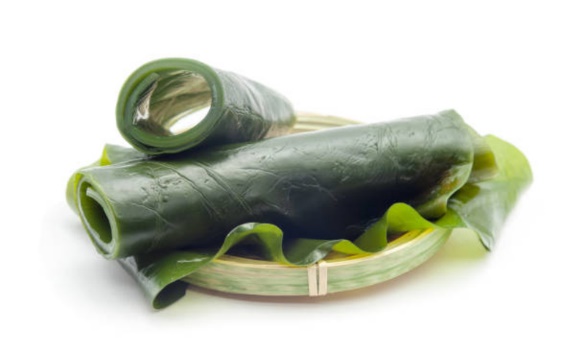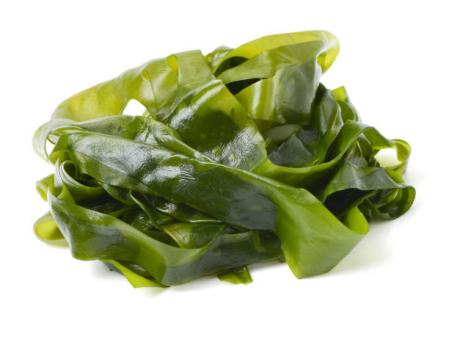Kelp, a type of nutrient-rich seaweed, has long been a staple in Asian cuisines, and it's gaining global recognition for its impressive health benefits. As a versatile ingredient, it can be used in a variety of dishes, infusing them with its distinct flavor. But it's not just the taste that's winning over chefs and food enthusiasts. This sea vegetable is packed with vitamins, minerals, and antioxidants that can enhance your well-being in multiple ways. From boosting heart health to supporting thyroid function, kelp provides a multitude of health benefits that make it a worthy addition to any kitchen. In this article, we'll dive deeper into the top eight health benefits of incorporating kelp into your diet, shedding light on this underwater treasure.
What is Kelp?

Kelp, also known as brown algae, is a type of seaweed that grows in shallow, nutrient-rich waters along coastlines. It's found in oceans worldwide and is a vital part of marine ecosystems. Kelp has been consumed for centuries in Asian countries like Japan, China, and Korea and was traditionally used for its medicinal properties. Today, it's widely available in dried or powdered form and can be found in many health food stores and supermarkets.
Top 8 Health Benefits of Kelp
1. Improves Thyroid Function
Kelp is a rich source of iodine, a vital nutrient that supports thyroid health. The thyroid gland uses iodine to produce thyroid hormones, which control the body's metabolism and many other important functions. In regions where iodine is scarce in the diet, consuming kelp can help prevent iodine deficiency, which can lead to conditions such as hypothyroidism.
Moreover, kelp contains a natural compound called fucoxanthin, which may enhance the metabolism and aid in weight management, further promoting thyroid health. Therefore, incorporating a moderate amount of kelp into your diet can help maintain a healthy thyroid function.
2. Supports Heart Health
Kelp can play a significant role in maintaining heart health due to its high content of essential minerals such as potassium and magnesium. These elements are known to help regulate blood pressure levels, thereby reducing the risk of cardiovascular diseases like strokes and heart attacks. Potassium, in particular, helps balance the body’s sodium levels and eases tension in the walls of blood vessels.
Kelp is rich in antioxidants including vitamin C and E, and flavonoids, which can help prevent the buildup of harmful free radicals, protecting the heart from oxidative damage. Thus, introducing kelp into your diet could be a heart-friendly move.
3. Enhances Bone Health
Kelp is an excellent source of many minerals that are essential for maintaining healthy bones, such as calcium, magnesium, and phosphorus. These minerals work together to strengthen bones and prevent conditions like osteoporosis. Moreover, kelp also contains vitamin K, a nutrient known for its role in bone metabolism and the prevention of fractures. If you’re looking to improve your bone health, adding kelp to your diet could be an excellent natural solution.
4. Boosts Immune System
Kelp is a rich source of vitamins and minerals that are crucial for maintaining a strong immune system. It's particularly high in vitamin C, which helps stimulate the production of white blood cells that fight against infections and diseases. Furthermore, kelp contains a compound called fucoidan, which has immune-boosting properties and is also being studied for its potential anti-cancer effects. Consuming kelp regularly can help fortify your immune system and protect against illnesses.
5. Aids in Weight Management
Kelp contains a compound called fucoxanthin, which has been shown to have a positive effect on metabolism. It may help regulate blood sugar levels and reduce fat accumulation in the body, making it beneficial for weight management. Additionally, kelp is low in calories and high in fiber, helping you feel full for longer periods and preventing overeating. Including kelp in your diet can be an effective way to support your weight loss journey.
6. Promotes Healthy Skin and Hair
Kelp is rich in several vitamins, minerals, and antioxidants that are essential for maintaining healthy skin and hair. For instance, vitamin A helps promote cell turnover and collagen production, leading to smoother and more youthful-looking skin. It also contains the mineral selenium, which can help protect against UV damage and improve skin elasticity. Furthermore, kelp's high content of iron and zinc can promote hair growth and prevent hair loss. Incorporating kelp into your diet may contribute to a glowing complexion and luscious locks.
7. Regulates Hormone Levels
The vitamins and minerals present in kelp have been linked to regulating hormone levels in the body. In particular, kelp is rich in iron, which plays a crucial role in the production and regulation of hormones. It also contains manganese, a mineral that helps balance estrogen levels and reduce symptoms associated with PMS or menopause. Maintaining adequate hormone levels is essential for overall health, making kelp an excellent addition to your diet.
8. Improves Digestive Health

Kelp is a good source of dietary fiber, a nutrient that plays a vital role in maintaining digestive health. Fiber helps move food through the digestive tract and promotes regular bowel movements, preventing constipation and other gastrointestinal issues. Moreover, kelp also contains prebiotics, which are essential for feeding beneficial gut bacteria and promoting a healthy balance of microflora in the gut.
Conclusion
From supporting thyroid function to improving bone health, kelp offers various health benefits that make it a valuable addition to any diet. Its high nutrient content and low calorie count make it an ideal food for weight management. Furthermore, its rich antioxidant profile helps protect against oxidative damage and diseases like heart disease and cancer. So next time you're looking for a healthy and nutritious ingredient to add to your meals, consider incorporating kelp in your diet. Your body will thank you for it!

Why Kelp Deserves a Spot in Your Kitchen: Top 8 Health Benefits
Jan 08, 2024

Gluten-Free Sausages: Enjoyable Options for Breakfast and Dinner
Jan 06, 2024

Coconut Oil: Unveiling Its Nutritional and Health Benefits
Dec 19, 2023

Effective Shoulder Strengthening Exercises for Robust Musculature
Nov 09, 2023

Best Healthy Late-Night Snacks
Nov 08, 2023

What is Fibromyalgia Pain and its types
Jan 15, 2024

Can Laundry Methods Sabotage the Skin
Dec 06, 2023

Beginner's Roadmap to Starting Cardio Workouts
Dec 18, 2023

Best Prebiotic Foods
Dec 22, 2023

How Much Caffeine in Coffee
Dec 20, 2023

Pilates Reformer Workout for Beginners
Jan 02, 2024

Optimizing Health Through Exercise
Dec 30, 2023